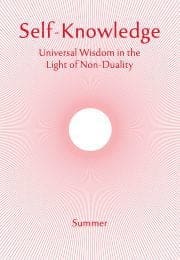The Course of Love-Knowledge
At the end of the prose part of A Thousand Teachings, Shri Shankara has, with great logical acumen, demonstrated that the subject is different from the object, and that the properties of the object are not the properties of the subject. You see a cow lounging in the open air in a green field. Its properties, which consist of a fractional expression of consciousness in which mental attributes, constructiveness, thought and creativeness play no part, are not your properties. You have reason, imagination and ability to study science, philosophy and art. You have an ethical sense. You create forms of beauty and utility in the world of time-space, and in the mental world you also create conceptions of art, politics, religion and so forth. In one word, you are not the object which you perceive. Then, the world you perceive is not you. You must know your property and not confuse it with objects of your conception and perception.
What is the chief property of our spirit? In a certain sense, the spirit is the subject; in a higher sense it is witness, detached, unaffected; it is existence, consciousness and bliss. It is freedom, luminosity and stability.
What, then, is the nature of the world? Subject to perception and conception, extended in time-space, subject to change every moment, a field of disappointment lit occasionally by flashes of pleasure, and an abode of worry, care and pain, the world cannot be the spirit. The world is nothing but an imaginary and illusory set of limitations, imposed on the universal spirit. It is in fact not real; its existence is like the existence of a ring in a ring of gold.
Subscribe or enrol for free guest access to read all of this article and Self-Knowledge online.
Already subscribed or enrolled? Log in:


